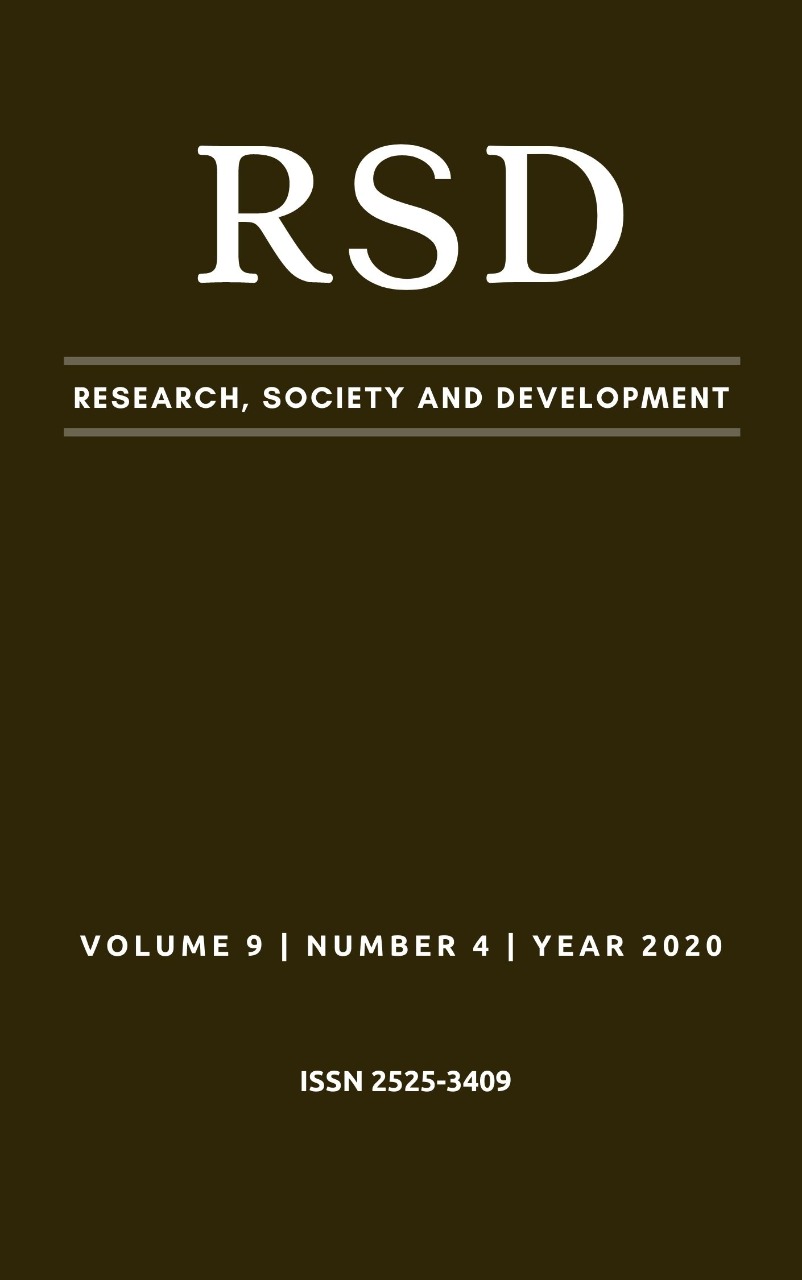Oralidade africana e cultura afro-brasileira no ambiente educacional: algumas reflexões
DOI:
https://doi.org/10.33448/rsd-v9i4.2888Palavras-chave:
Tradição oral, Africanidades, Reparação, Inclusão social.Resumo
Este trabalho tem como objetivo propor algumas reflexões e considerações a respeito da cultura afro-brasileira no ambiente educacional, bem como a importância da oralidade africana neste contexto. Estudaremos sobre a contribuição deixada pela África Antiga passada para as futuras gerações a partir da palavra, legado de preservação e divulgação da cultura. Esse estudo é teórico de abordagem qualitativa onde aprofundamos nos discursos de autores que estudaram a temática africana, afro-brasileira e aspectos da tradição oral na África Antiga. As Diretrizes Curriculares Nacionais para as questões étnico-raciais (2004), bem como as Leis 9.394/1996, 10.639/03 e 11.645/2008 formaram nosso campo de estudo nas políticas públicas que garantem a inclusão da temática no currículo escolar. Pretendemos colaborar para que a temática africana, afro-brasileira e indígena seja um caminho de manifesto, luta, valorização e reparação cultural para a equidade educativa.
Referências
Bâ, Amadou Hampaté, A. (2010) Tradição Viva In. História geral da África, In: Metodologia e pré-história da África / editado por Joseph Ki -Zerbo. – 2.ed. rev. – Brasília : UNESCO. Capitulo 8, p. 167. Disponível em: http://unesdoc.unesco.org/images/0019/001902/190249por.pdf> acessado em: nov. 2019.
Brasil. (2003). Lei nº10.639 de 9 de janeiro de 2003.Ministério da Educação. Disponível em: http://etnicoracial.mec.gov.br/images/pdf/lei_10639_09012003.pdf Acesso em: mai. 2019.
Brasil. (1996). Lei de Diretrizes e Bases da Educação Nacional – LDB nº 9394/1996. Disponível em: http://www.planalto.gov.br/ccivil_03/Leis/L9394.htm. Acesso em: set. 2019.
Brasil. (2004). Diretrizes curriculares nacionais para a educação das relações Etnicorraciais e para o ensino de história e cultura afro-brasileira e africana. Brasília: MEC, 2004. Disponível em: http://www.acaoeducativa.org.br/fdh/wp-content/uploads/2012/10/DCN-s-Educacao-das-Relacoes-Etnico-Raciais.pdf Acesso em: set/2019
Brasil. (2004). Resolução n. 1, de 17 de junho de 2004. Brasília: MEC, 2004. Disponível em: <http://portal.mec.gov.br/cne/arquivos/pdf/res012004.pdf>. Acesso em: set/2019.
Castro, Gonçalves Ribeiro. (2012). História e Cultura Africana e Afro-brasileira na escola/ Maurício de Barros de Castro [et.al.]; Maria Alice Rezende Gonçalves, Ana Paula Alves Ribeiro (organizadores). – Rio de Janeiro; Outras letras.
Cunha, Washington Dener dos Santos. (2012). O comércio de almas e corpos: uma pequena história do tráfico. In: CASTRO, GONÇALVES, RIBEIRO. História e Cultura Africana e Afro-brasileira na escola/ Maurício de Barros de Castro...[et.al.];Maria Alice Rezende Gonçalves, Ana Paula Alves Ribeiro (organizadores). – Rio de Janeiro; Outras letras.
Gonçalves, Maria Alice Rezende. (2012). Ações afirmativas: as políticas públicas de inclusão de negros no sistema de ensino superior brasileiro. In: CASTRO, GONÇALVES, RIBEIRO. História e Cultura Africana e Afro-brasileira na escola/ Maurício de Barros de Castro...[et.al.];Maria Alice Rezende Gonçalves, Ana Paula Alves Ribeiro (organizadores). – Rio de Janeiro; Outras letras, 2012.
Romão, Jeruse (Org). (2005). História da Educação do Negro e outras histórias. Secretaria de Educação Continuada, Alfabetização e Diversidade. –Brasília: Ministério da Educação, Secretaria de Educação Continuada, Alfabetização e Diversidade.
Vansina, Jan. (2010). A tradição oral e sua metodologia. In: KI¬ZERBO, J. Coordenador. História Geral da África: I metodologia e Pré¬ História da África. São Paulo: Ática; UNESCO, 2010. 992p. Disponível em: http://unesdoc.unesco.org/images/0019/001902/190249por.pdf- Acesso em: jan. 2019.
Downloads
Publicado
Edição
Seção
Licença
Autores que publicam nesta revista concordam com os seguintes termos:
1) Autores mantém os direitos autorais e concedem à revista o direito de primeira publicação, com o trabalho simultaneamente licenciado sob a Licença Creative Commons Attribution que permite o compartilhamento do trabalho com reconhecimento da autoria e publicação inicial nesta revista.
2) Autores têm autorização para assumir contratos adicionais separadamente, para distribuição não-exclusiva da versão do trabalho publicada nesta revista (ex.: publicar em repositório institucional ou como capítulo de livro), com reconhecimento de autoria e publicação inicial nesta revista.
3) Autores têm permissão e são estimulados a publicar e distribuir seu trabalho online (ex.: em repositórios institucionais ou na sua página pessoal) a qualquer ponto antes ou durante o processo editorial, já que isso pode gerar alterações produtivas, bem como aumentar o impacto e a citação do trabalho publicado.


